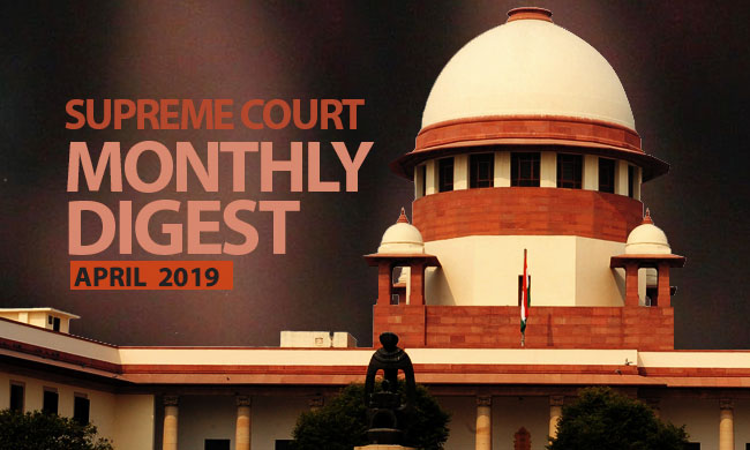- Home
- /
- Top Stories
- /
- Supreme Court Monthly Digest- April...
Supreme Court Monthly Digest- April 2019
Ashok Kini
11 May 2019 2:03 PM IST
One Sided Clauses In Builder-Buyer Agreements Is An Unfair Trade Practice Pioneer Urban Land & Infrastructure Ltd. V. Govindan Raghavan The Supreme Court held that the incorporation of one-sided clauses in a builder-buyer agreement constitutes an unfair trade practice as per Section 2 (r) of the Consumer Protection Act, 1986. The bench comprising Justice UU Lalit and Justice...
Next Story



